Former Fellows News, Fall 2016

ELEVEN former fellows elected to the American Academy of Arts and Sciences (AAAS) in April were officially inducted in a ceremony held on October 8, 2016, in Cambridge, MA.
CNN interviewed Jo Boaler (2004-05, education) on math mindsets that create a gender gap in the sciences. The piece also features Boaler’s 2016 TEDx talk.
Albert Camarillo (1982-83, 1994-95, history) received the 2016 Equity Award from the American Historical Association. Watch him talk about the increasing influence of Hispanic voters in the 2016 elections here.
The Guardian produced a podcast in which Clayborne Carson (1993-94, history) discussed the Black Lives Matter movement with Russell Simmons.
Laura Carstensen (2009-10, psychology) released a study through the Stanford Center on Longevity showing that aging adults play critical roles in the lives of young people, especially the most vulnerable in society.
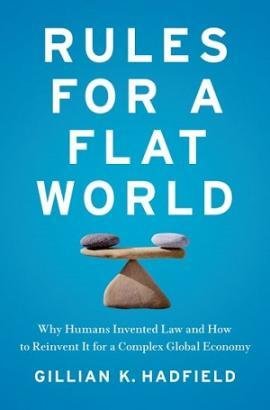
Shelley Correll (2015-16, sociology) authored an article in Harvard Business Review indicating that women need more visibility in order to succeed in the tech sector.
Kimberlé Crenshaw (2008-09, law) did a TED Talk on "The Urgency of Intersectionality" -- the double race and gender bias against African American women.
A blog post by Larry Cuban (1999-2000, education) on whether insiders or outsiders manage public schools better was re-published by the Washington Post.
Martin Daly (1989-90, ecology and evolutionary biology) released his book Killing the Competition: Economic Inequality and Homicide (Transaction Publishers) in July 2016.
In July 2016 Mary Dudziak (2014-15, law) published an op-ed on “Donald Trump and America’s Moral Authority” in the New York Times.
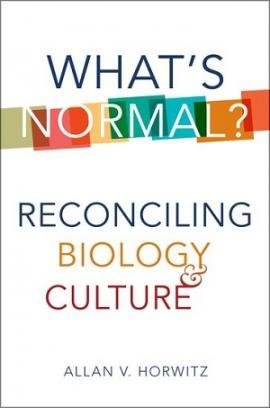
Morris Fiorina (1982-83, political science), David Brady (1985-86, 2001-02, political science), and Doug Rivers (1992-93, political science) launched a podcast to help people make sense of the 2016 election. Post-election, Brady, Rivers, and Jon Krosnick (1996-97, 2013-14, psychology) discussed the challenges that pollsters faced during the 2016 presidential election cycle.
Robert Frank (1992-93, economics) received widespread coverage of his book Success and Luck: Good Fortune and the Myth of Meritocracy (Princeton Univ. Press), including from New America Weekly and Pacific Standard, among others. Watch Frank discuss “The Winner-Take-All Economy here. He also made a plea for Democrats to regain a majority in the U.S. House of Representatives in a New York Times op-ed piece.
Henry Louis Gates, Jr. (2007-08, African American studies) published an op-ed in the New York Times on the significance of the opening of the new National Museum of African American History.
The public radio program Here and Now interviewed Robert Gibbons (1994-95, 2014-15, economics) on the importance and relevance of the work by 2016 economics Nobel Prize winners Oliver Hart and Bengt Holmström.
CNN reported on an app co-developed by David Grusky (1991-92, sociology) that quizzes users on issues relating to inequality.
On November 1 Gillian Hadfield (2006-07, 2010-11, law) published her new book Rules for a Flat World: Why Humans Invented Law and How to Reinvent It for a Complex Global Economy (Oxford Univ. Press).
Edward Haertel (1994-95, education) is the 2016 winner of the E.L. Thorndike Career Achievement Award, given by the American Psychological Association's division on educational psychology. It is the highest prize given for substantial contributions to educational psychology.
Michigan State University appointed Darlene Clark Hine (2000-01, history) as its Visiting Hannah Distinguished Professor – the most prestigious faculty appointment at the university – for the 2016-17 academic year.
Allan Horwitz (2012-13, sociology) received the 2016 Leo G. Reeder Award from the medical sociology section of the American Sociological Association for his distinguished career in medical sociology. His latest book, What’s Normal? Reconciling Biology and Culture, was published by Oxford University Press in September.
A New York Times article by former CASBS consulting scholar John Markoff, about automated pro-Trump bots overwhelming pro-Clinton messages, relied heavily on recent research by Philip Howard (2008-09, communication).
Public Radio International interviewed Louis Hyman (2015-16, history) on what the rise of the gig economy means for the American dream. CityLab also interviewed Hyman on the geographic and economic segregation that underlies the police protests and rioting that have erupted in the U.S. in recent years.
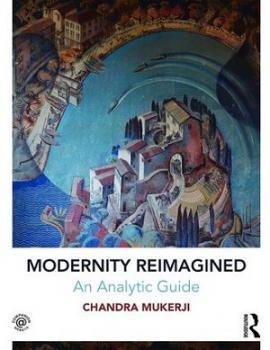
Hyman and Natasha Iskander (2015-16, public affairs, public policy and urban studies) published a piece in Slate on U.S. historical precedent for mass deportation of immigrants and lessons we can draw moving forward.
Guillermina Jasso (1999-2000, sociology) was the 2015 recipient of the Paul F. Lazarsfeld Award by the American Sociological Association’s section on methodology for a career of outstanding contributions to sociological methodology. In April Jasso delivered the 2016 Karl F. Schuessler Lecture in Social Science Methodology at Indiana University, speaking on “Inputs and Outcomes, Theory and Empirics, and Causality.”
Philip Kendall (1980-81, psychology) is recipient of the 2016 Aaron T. Beck (ATB) Award from the Academy of Cognitive Therapy for significant and enduring contributions to cognitive therapy.
The KQED public radio program Forum interviewed Michael Kirst (1980-81, education), now president of the California State Board of Education. Kirst also was profiled in Palo Alto Online.
Melvin Konner (1986-87, anthropology) and Sander Gilman (1996-97, history), both on the faculty at Emory University, were among 11 former CASBS fellows who were inducted into the American Academy of Arts and Sciences in October.
Elizabeth Loftus (1978-79, psychology) received the 2016 Isaac Asimov Science Award from the American Humanist Association. In 2015 she was awarded a Doctor of Social Sciences Honoris Causa from Goldsmiths College, University of London; as well as a Law, Psychology, and Human Development Lifetime Achievement Award from Cornell University.
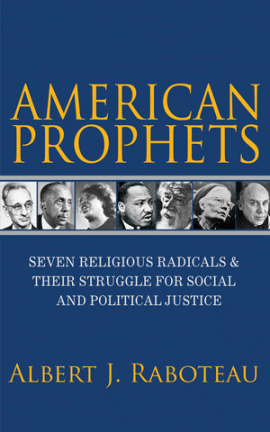
Vox interviewed Glenn Loury (2015-16, economics) about his views on political correctness, the legacy of state-sanctioned racism, and his disagreements with writer Ta-Nehisi Coates. Loury discussed racism and violence in America on Sam Harris’s podcast. He talked about themes and issues from his forthcoming memoir on an episode of Love + Radio.
Doug McAdam (1991-92, 1997-98, sociology; CASBS director 2001-05) discussed American racial politics and social movements on an episode of The Society Pages’ “Office Hours.” He also appeared on CNN, explaing how the Electoral College undermines the central principle of political equality.
In early November Rose McDermott (2008-09, 2015-16, political science) gave a TEDx talk on the biological basis for political traits.
Modernity Reimagined: An Analytic Guide (Routledge) is the forthcoming book by Chandra Mukerji (2008-09, science and technology studies). Hear her discuss the book on TLV1 Radio.
Dina Okamoto (2011-12, sociology) is co-winner of the 2016 Book Award from the American Sociological Association’s section on Asia and Asian American Studies for her book Redefining Race: Asian American Panethnicity and Shifting Ethnic Boundaries (Russel Sage Foundation, 2014).
Albert Raboteau (1986-87, history) is author of the new book American Prophets: Seven Religious Radicals and Their Struggle for Social and Political Justice (Princeton Univ. Press).
In retirement John Shelton Reed (1990-91, 2000-01, sociology) is having far more fun than the rest of us, in 2016 having published Barbeque: A Savor the South® Cookbook (Univ. of North Carolina Press).
Listen to the Los Angeles Times’s Patt Morrison interview John Rickford (1990-91, linguistics) on how using ebonics affects African Americans.
Barbara Risman (2015-16, sociology) published an op-ed piece in the The News & Observer on how millennials can show the way on perceptions relating to gendered bathrooms, bullying, and the recent controversy over House Bill 2 in North Carolina.
Jonathan Rodden (2006-07, political science) wrote an article in the Washington Post on the spatial distribution of industries and surrounding rural peripheries, and the consequences for voting behavior.
Watch an American Educational Research Association Ed-Talk recently given by Barbara Rogoff (1988-89, 2006-07, psychology) on the learning strengths of children from underserved backgrounds. Read an accompanying fact sheet. Previously Rogoff delivered a TEDx talk on collaboration among children.
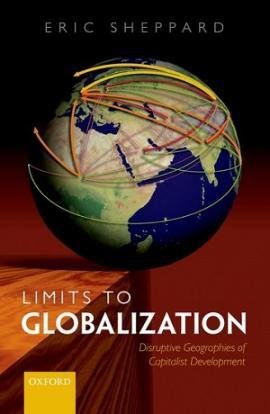
Lawrence Rosen (2009-10, 2013-14, anthropology) received the biannually-awarded J.B. Donne Prize on the Anthropology of Art by the Royal Anthropological Institute of Great Britain for his essay “Chaos and Choice: The Social Meaning of an Islamic Art Form.”
Michael Scriven (1961-62, philosophy) recently established the Faster Forward Fund for facilitating, evaluating, and supporting the development of the theory, practice, and profession of evaluation. Learn more here.
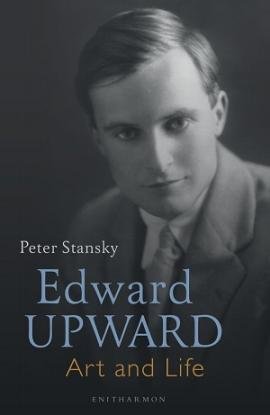
Eric Sheppard (2005-06, geography) is author of the new book Limits to Globalization: Disruptive Geographies of Capitalist Development (Oxford Univ. Press).
In September 2016, the Smith Richardson Foundation hosted a roundtable discussion oriented around a recent book by Zachary Shore (2011-12, history), A Sense of the Enemy: The High-Stakes History of Reading Your Rival’s Mind (Oxford Univ. Press), which he developed while a CASBS fellow.
Kenneth Shotts (2015-16, political economy) is coauthor of “Assessing Robustness of Findings about Racial Redistricting’s Effect on Southern House Delegations” in Statistics, Politics and Policy.
Edward Slingerland (2015-16, religion) recently delivered a TEDx talk that combines early Chinese philosophy with cutting-edge research from modern cognitive science,
evolutionary studies, and social psychology to explain why we should “try not to try” in pursuit of our goals.
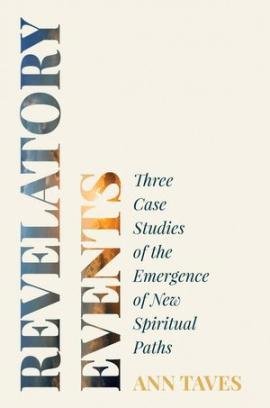
Jan Smedslund (1967-68, psychology) is most recently the author of “Practicing Psychology without an Empirical Evidence-Base: The Bricoleur Model,” in New Ideas in Psychology; “Why Psychology Cannot be an Empirical Science,” in Integrative Psychological and Behavioral Science,” and “The Value of Experiments in Psychology,” in The Wiley Handbook of Theoretical and Philosophical Pscyhology: Methods, Approaches, and New Directions for Social Sciences.

Ronald Suny (2001-02, 2005-06, political science) is the 2016 winner of the Wayne S. Vucinich Book Prize for the most important contribution to Russian, Eurasion, and East European Studies, represented in his book They Can Live in the Desert but Nowhere Else: A History of the Armenian Genocide (Princeton Univ. Press, 2015).
Peter Stansky (1988-89, 2013-14, history) recently published Edward Upward: Art and Life (Enitharmon Press).
Ann Taves (2008-09, religion) recently released Revelatory Events: Three Case Studies of the Emergence of New Spiritual Paths (Princeton Univ. Press).
In tribute to Edward Tiryakian (1997-98, sociology), co-editors Roland Robertson and John Simpson recently published The Art and Science of Sociology: Essays in Honor of Edward A. Tiryakian (Anthem Press).
Robb Willer (2012-13, sociology) co-wrote an article in the Washington Post on the differences between Republicans and Democrats in the formation of political consensus.
